Are LED Boat lights really better?
Is it worth the time and expense to convert?
Just a few years ago I considered converting some lights on my 1988 compact cruiser to LED boat lights. The benefits seemed obvious. Longer life, lower power consumption and lower heat output. All great features.
Back then the cost and availability of LED bulbs and new fixtures was prohibitive. Fast forward to today.
Marine LED conversion kits are now very reasonably priced and abundant. Your options are many and varied. So, now the question is not “is it cost effective and are there easily accessible parts and products?”. The question is “how do I decide what LED light products do I need?”.
3 Common LED Conversion Options
The first and easiest option is bulb replacement. You can now find reasonably priced replacement LEDs for any style original sockets/fixtures. In some cases the cost of these LED replacement lights is equal to or less than the original incandescent bulbs.
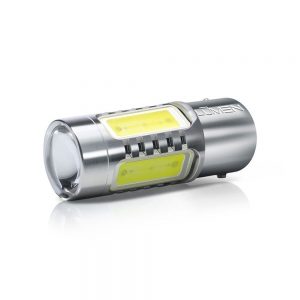
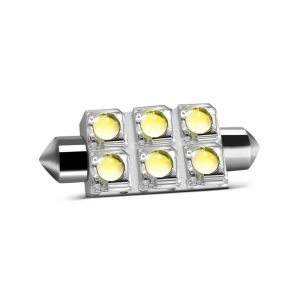
Sourcing the LED lights you need is the only consideration. I’ve found online sources that are priced substantially lower than your local boat parts store. At the end of this article I list a couple of my favorites.
The second option is to replace the bulbs in your existing fixture with LED chips.
This involves removing the bulb socket and hard wiring in a 12v LED chip. this option takes a little more time but has its advantages. The variety of lights is the biggest advantage.
LED chips are available in a variety of intensities, hues and color options that are not generally available in the replacement LED bulbs.
Another advantage of using LED chips instead of replacement bulbs is the price. Chips are substantially less expensive than replacement bulbs.
Drawback to this option is that it takes a little work. The original bulb socket has to be removed and the chip-set has to be wired into the fixture. Then the chip has to be affixed to the fixture. I use a hot glue gun or epoxy.
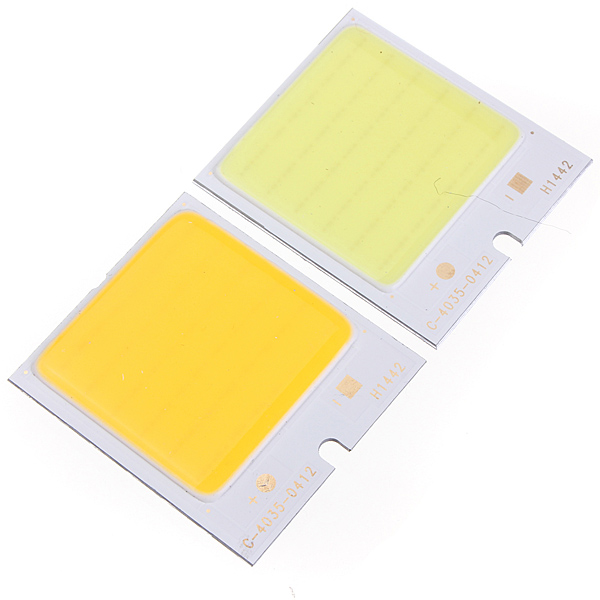
Typical 12v DC LED Chips 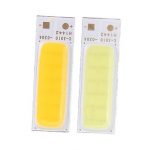
Typical 12v DC LED Chips 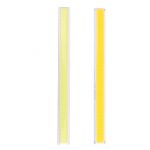
Typical 12v DC LED Chips
Typical 12v DC LED Chips
Difficulty level is, in my opinion, easy. Tools required include a soldering iron and solder, basic hand tools for removing fixtures and epoxy or a hot glue gun.
The third option is to simply replace the fixture. This is of course the most expensive option. But, it may be the most desirable especially if your boat is older like mine is.
Updating fixtures can improve the overall appearance of your boat and reliability of your lighting. Twenty or more year old switches in the original fixtures are suspect and their remaining life may be short.
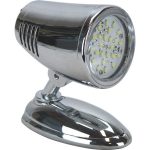
12v DC Reading Light 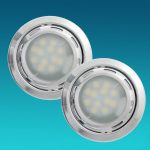
12v DC Marine Lights 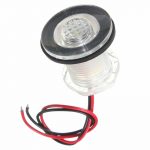
12v DC Marine Underwater Lights
I put off converting to LED lights for a few years because the cost, availability and variety of options was limiting. That has all changed.
The options are many and varied depending on your needs.
All boaters are concerned about electric power demands and reliability of lighting systems. LED conversions will go a long way to improving power consumption goals and longevity.
Below are links to a couple sources for LED chips, strip lights and LED light fixtures.
I had a lot of fun adding new lighting features throughout my boat. It’s not only made my boat more functional and aesthetically pleasing it has also made my wife happy!
Resources:
The first resource is Banggood
I have purchased a few times from this source and am impressed with their follow-up after the sale. The products have been as described. Prices are good. This site also offer a wide of variety of other products you may be interested in.
The second resource is Super Bright LEDs
I’ve purchased a bunch of stuff from this company. Prices are very good. Products are as advertised. The have a good selection of LED replacement bulbs and strip lights. There selection of light fixtures as somewhat limited for boats but it’s worth a look.
Last But Not Least is Amazon!
Seems like you can always find what you’re looking for on Amazon no matter what it is. LED boat lights and fixtures are no exception. Click the link above to visit a pretty good resource for marine lights.
One last thought:
When you’re searching for LEDs of any kind be sure you are looking at products that are for 12v DC systems. That way you avoid the necessity of incorporating a converter into the system. LEDs are designed to work with a variety of power ranges.
There are plenty of 12v DC light products out there now.
Trackbacks/Pingbacks